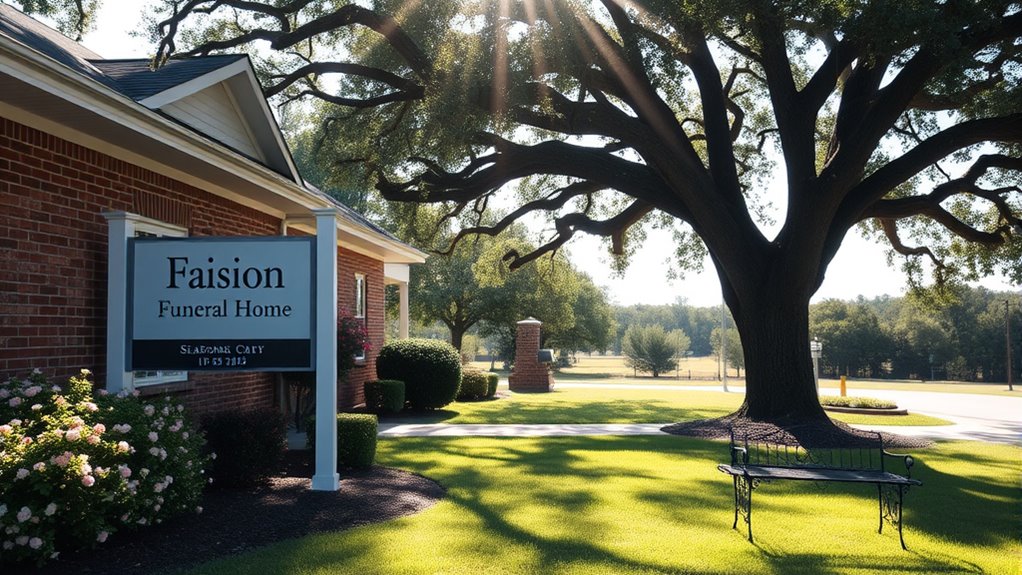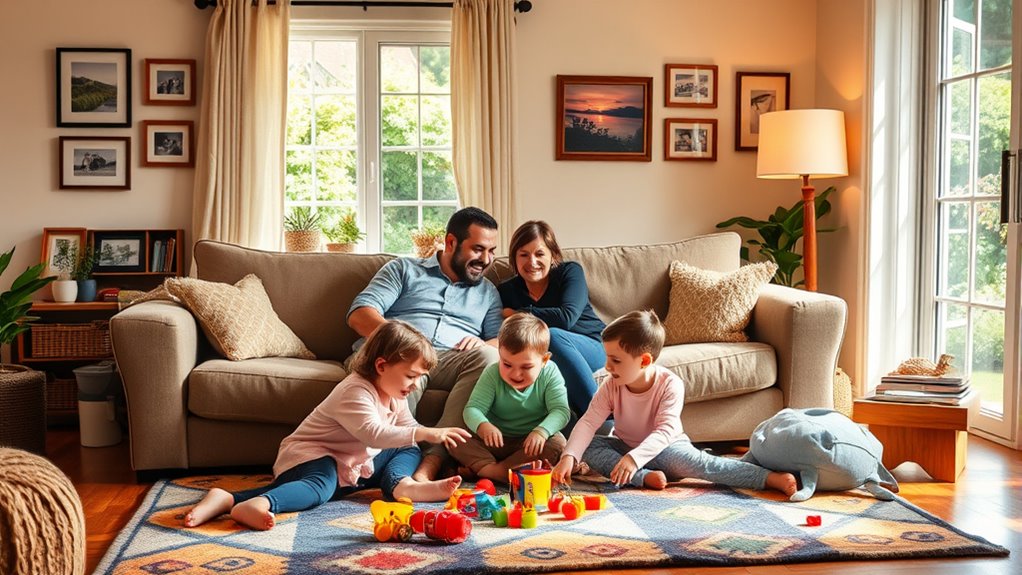
At Faison Funeral Home in Seaboard, NC, obituaries serve a deeper purpose than just listing facts about a person’s life. They create a space for families to share their loved one’s story and connect with others during a difficult time. Understanding how these tributes impact the grieving process can provide valuable insights. Let’s explore the significance of these heartfelt messages and what they mean for both individuals and the community.
Key Takeaways
- Faison Funeral Home provides obituaries for individuals in Seaboard, NC, honoring their lives and sharing their stories with the community.
- Obituaries serve as a public acknowledgment of a loved one’s life, facilitating the grieving process for families and friends.
- The funeral home engages in community support, offering resources and connections for grieving families to help navigate their loss.
- Families can find comfort in shared memories, as obituaries encourage reflection and conversation about the deceased among community members.
- Faison Funeral Home’s involvement in local partnerships enhances its role in promoting healing and remembrance through obituary publications.
The Role of Faison Funeral Home in the Community
Faison Funeral Home serves as a cornerstone in the community, providing essential support during life’s most challenging moments. You’ll find that their commitment goes beyond just funeral services; they actively engage in community involvement, ensuring they’re a reliable resource for families in need. By forming local partnerships, they strengthen ties with schools, charities, and civic organizations, fostering a sense of unity and support. When you choose Faison, you’re not just selecting a service; you’re becoming part of a network that values compassion and connection. They host events that promote healing and remembrance, making it easier for you to navigate grief. Faison Funeral Home truly embodies the spirit of togetherness, making a lasting impact on the lives they touch.
Understanding the Importance of Obituaries
Obituaries play an essential role in the grieving process by helping you acknowledge and process your loss. They also provide a chance to celebrate the life of your loved one, sharing their story with family and friends. Understanding their importance can bring comfort and connection during a challenging time.
Role in Grieving Process
While it might seem like just a formal notification, an obituary plays an important role in the grieving process. It serves as a public acknowledgment of your loved one’s life, allowing you and others to express grief in a meaningful way. By sharing memories and details, you create a space for grief expressions, helping you connect with those who also mourn. This communal aspect fosters emotional healing as you navigate your feelings together. Reading and reflecting on an obituary can prompt conversations and support, making it easier to confront your loss. Ultimately, an obituary isn’t just a record; it’s a crucial step in honoring your loved one and beginning the journey toward acceptance and healing.
Celebrating a Life
Acknowledging a loved one’s passing is just the beginning of the healing journey; celebrating their life is equally important. Obituaries serve as a canvas for sharing cherished memories and highlighting life milestones. They allow you to honor the unique experiences that shaped your loved one, reminding everyone of the joy they brought into the world. Crafting tribute messages can help you articulate your feelings, creating a lasting tribute that resonates with others. By celebrating their achievements, passions, and relationships, you not only preserve their memory but also invite others to join in the remembrance. This act of celebration fosters connection, allowing you and others to find solace in shared memories and the legacy they leave behind.
How Obituaries Help in the Grieving Process
Obituaries play an essential role in your grieving process by helping you acknowledge your loss and provide a space for mourning. They also allow you to celebrate the life and memories of your loved one while connecting with community support. By sharing these stories, you can find comfort and strength during this difficult time.
Acknowledging Loss and Mourning
When you experience the loss of a loved one, the process of mourning can feel overwhelming and isolating. Acknowledging your grief is essential for healing, and obituaries can play a significant role in this journey. They not only honor the deceased but also provide a sense of community and support. Here are four ways obituaries help with grief support:
- Validation: They acknowledge your loss publicly, reinforcing that it’s okay to grieve.
- Connection: Sharing memories can foster connections with others who also mourn.
- Ritual: Reading obituaries can serve as a mourning ritual, giving structure to your grief.
- Reflection: They encourage you to reflect on your loved one’s life and legacy, aiding the healing process.
Celebrating Life and Memories
Grief often feels heavy, but celebrating the lives of those we’ve lost can lighten that burden. Obituaries serve as powerful tools for memory preservation, allowing you to reflect on the unique stories and experiences that shaped your loved one. By sharing anecdotes and cherished moments, you create a lasting tribute that honors their legacy.
These life reflections can bring comfort during difficult times, reminding you of the joy and love that person brought into your life. As you read or write an obituary, you connect with the essence of who they were, helping you process your feelings. Embracing these memories not only aids your healing journey but also strengthens the bonds you share with family and friends.
Connecting With Community Support
While traversing the emotional landscape of loss, connecting with your community can provide invaluable support. Obituaries serve as a bridge, helping you share your loved one’s story and inviting others to join you in your grief. Here are some ways community outreach can strengthen your support networks:
- Shared Memories: Inviting friends and family to share their stories can foster connection and healing.
- Emotional Support: Your community can provide comfort, lending a listening ear during tough times.
- Practical Help: Neighbors may offer assistance with meals, errands, or even funeral arrangements.
- Gathering Spaces: Local events or memorials can create a sense of belonging and remind you that you’re not alone in your journey.
Embrace these connections to navigate your grief more easily.
Celebrating Lives: The Art of Writing Obituaries
Crafting an obituary isn’t just about listing dates and facts; it’s about celebrating a life lived and honoring cherished memories. You’re telling a story that captures the essence of a person, showcasing their unique qualities and contributions. Obituary writing requires thoughtfulness, as it connects life stories that resonate with family and friends.
Here’s a quick guide to help you through the process:
| Element | Purpose | Example |
|---|---|---|
| Personal Details | Basic information | Name, age, and date of passing |
| Life Achievements | Highlight accomplishments | Career milestones, hobbies |
| Legacy | Impact on others | Family, friendships, community |
Connecting Families and Friends Through Memories
Memories have a powerful way of connecting families and friends, especially during times of loss. By focusing on memory preservation, you can strengthen those bonds and keep your loved ones close. Here are some ways to cherish and share memories:
- Create a memory book – Collect photos, stories, and mementos that celebrate your loved one’s life.
- Host a memory-sharing event – Invite family and friends to share their favorite stories and experiences together.
- Utilize social media – Share memories online to reach distant family members and friends, fostering connections.
- Plant a memorial garden – A living tribute can serve as a beautiful reminder of the love shared.
These actions enrich family connections and guarantee that cherished memories live on.
Resources and Support for Grieving Families
When facing the overwhelming emotions of grief, accessing the right resources and support can make all the difference. You’re not alone in this journey, and finding helpful grief resources can provide comfort. Consider seeking out support groups, either in-person or online, where you can connect with others who understand what you’re going through. Counseling services can also offer a safe space to express your feelings and navigate your grief. Don’t hesitate to lean on family support; talking with loved ones can foster healing and connection. Whether it’s sharing memories or simply being together in silence, the support of those who care about you is invaluable. Remember, it’s okay to ask for help during this challenging time.




